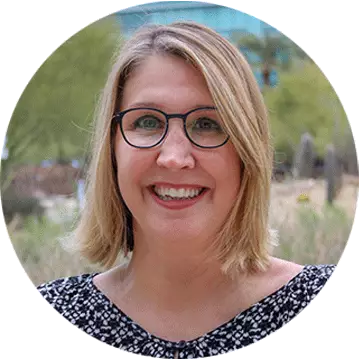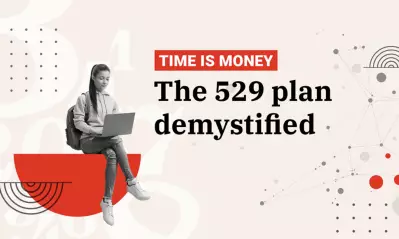How are college scholarships and grants different?

Written by Michael Feder

Reviewed by┬ĀChris Conway,┬ĀDirector of Financial Education Initiatives and Repayment Management

Benjamin Franklin once said, ŌĆ£An investment in knowledge pays the best interest.ŌĆØ While that remains true today, itŌĆÖs also true that your educational investment comes with some upfront costs. If youŌĆÖve been thinking of attending college and wondering how youŌĆÖll pay for it, itŌĆÖs time to┬Āresearch financial aid options.
Scholarships and grants are two forms of financial aid to consider first, since you generally donŌĆÖt have to pay them back. Both these financial aid options can help┬Ācover various college costs, such as tuition, housing, books and more.
The most common forms of financial aid to be considered are:
- Grants
- Scholarships
- Student loans
LetŌĆÖs take a closer look at┬Āfinancial aid┬Āoptions, especially the difference between grants and scholarships, and how they can impact your goals.
What is a scholarship?
Scholarships help students cover their college costs and, like grants, recipients generally do not have to pay them back. This type of financial aid can be awarded once or be renewable each semester or year depending on the awarding organizationŌĆÖs criteria.
Scholarships are often contingent on certain criteria. They can be based on need or merit, depending on the institutionŌĆÖs or organizationŌĆÖs criteria. Students can also receive scholarships┬Āfor athletics, arts and academic performance.
Who offers scholarships?
Foundations, corporations and religious groups also award scholarships for higher education. These scholarships can be based on need, merit, participation or other specific criteria.
Thousands of scholarship opportunities are out there from organizations ranging from nonprofit foundations to Fortune 500 companies. The┬Ā┬Āwith nearly 9,000 entries. Not surprisingly, these options run the gamut, from scholarships supporting women in the steel industry to scholarships designated for nontraditional students.
Colleges and universities also offer scholarships, as well as different programs within these institutions, like specific┬Āfinancial awards for teachers, technology students and more. They also often have┬Āscholarships for certain demographics, like military family members or first-generation college students. Like grants, scholarships often cover tuition, fees, books and housing. However, unlike grants,┬Ā┬Āmay be taxed.
How does a student apply for a scholarship?
ĘĪ▒╣▒░∙▓Ō╠²scholarship opportunity┬Ādiffers by institution, foundation and organization. Some colleges and universities┬Āautomatically offer scholarships┬Āwhen students with certain grades or test scores apply. Others may require a separate application. Scholarships from corporations and organizations may have different due dates, requirements and application materials.
Some scholarships are as simple as filling out a form, while others require additional steps such as┬Āsubmitting an essay or financial documentation.┬ĀDo your research and stay organized so you donŌĆÖt miss a deadline. Avoid applying for scholarships you are not eligible for so that you focus your energy on creating thoughtful, well-rounded scholarship applications.
Why is it important to apply for grants and scholarships?
Scholarships from accredited universities have helped ease that burden, just as grants from federal and state governments have helped make college more accessible to low-income families. It may take some research and legwork up front, but it can truly pay off to look into opportunities you may be eligible for. Every award, whether itŌĆÖs worth $100 or thousands, makes a difference.
Ways you could save time and money at Ų▀╔½╩ėŲĄ
Ų▀╔½╩ėŲĄ (UOPX) is committed to┬Āremoving barriers to higher education. To accomplish this, the University offers a variety of ways to save both time and money on a degree.
- Savings ExplorerŌäó tool: Find out how you could save on your degree program by answering a few questions about your life and work experience.
- Prior Learning Assessment: Put your experience to work for you. Our Prior Learning Assessment awards college credit for qualifying professional and life experiences.
- Fixed tuition: When you enroll at UOPX, your tuition rate is locked in until you graduate from your program.
- Transfer credits: UOPX accepts eligible credits from more than 5,000 accredited schools. Even better, transferring credits to UOPX is free! Find out which credits will transfer with a free evaluation using unofficial transcripts.
- 3+1 Transfer Pathway: Students can earn three years of general course requirements at a community college and then complete a bachelorŌĆÖs degree in just over a year with this UOPX program.
- Tuition assistance: UOPX works with hundreds of organizations to offer affordable, reduced-cost education to employees. Check with your employer to see if tuition benefits, reimbursement or assistance is available.
- Scholarships: UOPX offers scholarships for every degree level.

ABOUT THE AUTHOR
A graduate of Johns Hopkins University and its Writing Seminars program and winner of the Stephen A. Dixon Literary Prize, Michael Feder brings an eye for detail and a passion for research to every article he writes. His academic and professional background includes experience in marketing, content development, script writing and SEO. Today, he works as a multimedia specialist at Ų▀╔½╩ėŲĄ where he covers a variety of topics ranging from healthcare to IT.

ABOUT THE REVIEWER
As Director of Financial Education Initiatives and Repayment Management,┬ĀChris Conway works with departments across the University to provide resources that allow students to make more informed financial decisions. She is also an adjunct faculty member for the Everyday Finance and Economics course at the University, and she chairs the National Council of Higher Education Resources College Access and Success Committee. Conway is committed to helping college students make the right financial decisions that prevent future collection activity.
This article has been vetted by Ų▀╔½╩ėŲĄ's editorial advisory committee.┬Ā
Read more about our editorial process.
Read more articles like this:


